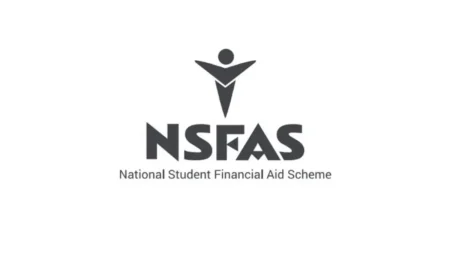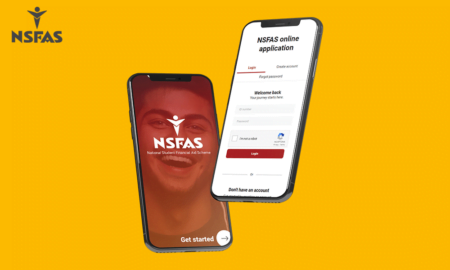Receiving news that your National Student Financial Aid Scheme (NSFAS) application was unsuccessful can be disheartening. However, it is important to remember that there is a beacon of hope in the form of the NSFAS appeals process.
This article is designed to guide you through the steps of appealing your NSFAS outcome, ensuring you understand the process, and increase your chances of a favorable review.
Understanding NSFAS Appeal
The NSFAS appeal process is there to ensure that every student’s application is fairly assessed. If your application was unsuccessful, you have the right to appeal the decision by providing additional information that you believe warrants a review of your case.
Purpose of the NSFAS Appeals Process
- Ensuring Fair Evaluation: The National Student Financial Aid Scheme (NSFAS) is committed to making sure every student’s application receives a fair and accurate evaluation. The appeals process acts as a crucial safety measure, designed to catch and correct any mistakes or oversights that may have occurred during the initial review.
- Building Transparency and Trust: Allowing students the opportunity to appeal is more than just a procedural step; it’s a way for NSFAS to foster a sense of transparency and trust. This openness shows students that NSFAS is truly committed to providing access to education based on need and merit, not hindered by bureaucratic errors or misunderstandings.
- A Second Look for a Fuller Picture: The appeal process is not merely about submitting extra paperwork. It’s a chance for a more thorough examination of your situation. This stage allows you to add context to your application, explain any special circumstances, and give a more detailed view of your financial and academic status.
Related: Common NSFAS Appeal Errors and Solutions
Step-by-Step Guide to Appeal Your NSFAS Outcome
- Check the Deadline:
- Understand the Importance: Realize the significance of the appeal deadline. It’s not just a date but your last opportunity to ensure your case is reconsidered for the current academic year.
- Mark Your Calendar: As soon as you receive your initial NSFAS outcome, mark the deadline on your calendar. Set multiple reminders a few days before the deadline to give yourself ample time to prepare a thorough appeal.
- Gather Supporting Documents:
- List Required Documents: Make a detailed list of all the documents required by NSFAS to support your appeal. This list can vary based on the reason for your appeal, so ensure it’s tailored to your specific situation.
- Ensure Relevance and Clarity: Each document should clearly support your appeal. For instance, if you’re appealing based on household income changes, documents like recent pay slips, unemployment documentation, or a death certificate (in case of a deceased breadwinner) are crucial.
- Get Official Documentation: Ensure that all documents are official and, if necessary, certified. Informal notes or uncertified documents may not be accepted and can weaken your appeal.
- Write a Convincing Appeal Letter:
- Structure Your Letter Effectively: Start with your personal details and NSFAS reference number. Clearly state that you are appealing your NSFAS outcome and why.
- Be Specific and Factual: Provide specific details about why you believe the initial assessment was incorrect. Use clear, factual information and avoid emotional pleas. The committee needs to see solid reasons backed by evidence.
- Link to Supporting Documents: Refer to your supporting documents in your letter. For example, “Please refer to the attached medical report for a detailed assessment of my health situation.”
- Submit Your Appeal:
- Follow NSFAS Guidelines: Submit your appeal according to the NSFAS guidelines. If it’s an online submission, ensure your internet connection is stable and you receive a confirmation of submission.
- Keep Records: If you’re submitting via email or in person, ask for a receipt or confirmation of submission. This is crucial evidence that you’ve met the deadline and requirements.
- Wait for the Outcome:
- Understand the Review Process: Recognize that your application will go through a committee review, which takes time. The committee carefully considers each appeal to ensure a fair decision.
- Monitor Official Channels: Keep an eye on your email, the NSFAS website, and any other official communication channels for updates on your appeal status.
- Follow Up:
- Be Proactive, Not Pushy: If the decision is taking longer than the communicated time, it’s appropriate to follow up. However, always be respectful and understand that the process involves many appeals, not just yours.
- Use Official Channels: Contact NSFAS through their official contact channels for follow-ups. Keep a record of whom you spoke to, the date, and the response for future reference.
Tips for a Successful NSFAS Appeal
- Be Meticulously Honest: Presenting accurate and truthful information is the cornerstone of a credible appeal. Any form of misinformation or fabrication can not only lead to the rejection of your appeal but might also have long-term repercussions on your academic journey.
- Embrace Thoroughness: Your appeal is your narrative. Ensure that every document, every piece of evidence, and every statement you provide contributes constructively to your story. Missing documents or unclear explanations can weaken your appeal, so review your submission checklist meticulously before submitting.
- Maintain Organized Records: Keep well-organized copies of all submissions and correspondence. This not only helps in maintaining a clear timeline of events but also ensures you have all the necessary information at hand for any follow-up discussions or queries.
- Balance Patience with Persistence: While it’s important to respect the process and its timelines, it’s equally important to be proactive. If the review period lapses without communication from NSFAS, a polite inquiry or follow-up can demonstrate your continued interest and urgency regarding the appeal.
- Seek Guidance When Needed: Don’t hesitate to seek advice or clarification. Whether it’s understanding the requirements more clearly or seeking help in articulating your appeal effectively, reaching out to academic advisors, student counselors, or even previous applicants can provide valuable insights and guidance.
- Prepare for Possible Outcomes: While optimism is crucial, it’s also wise to prepare for all possible outcomes. This means understanding what next steps are available to you if the appeal doesn’t result in the desired outcome, whether that’s exploring alternative funding options or preparing for a reapplication in the next cycle.
- Use Clear and Respectful Language: Your appeal letter is a professional document. Use clear, respectful, and polite language to convey your situation and request. A well-written, articulate appeal can make a strong impression on the decision-makers.
- Review and Revise: Before submitting, review your appeal letter and supporting documents. Check for clarity, grammatical accuracy, and ensure that every part of your submission aligns with the purpose of your appeal. A second pair of eyes can also offer new perspectives, so consider having a trusted mentor or advisor review your materials.
Tip: 9 Crucial NSFAS Application Status Outcomes Explained
Appealing your NSFAS outcome might seem daunting, but it is your right as a student. By following the correct procedures and preparing a comprehensive appeal, you stand a chance of having your funding decision overturned. Remember, the key is in the details – ensure that every part of your appeal is carefully considered and well-articulated.










